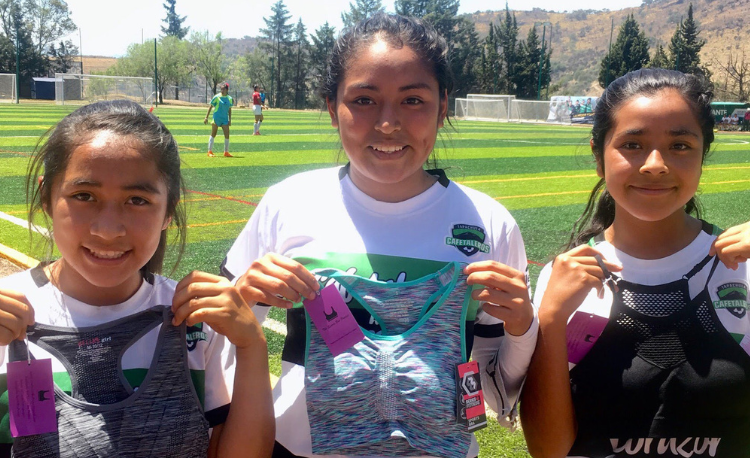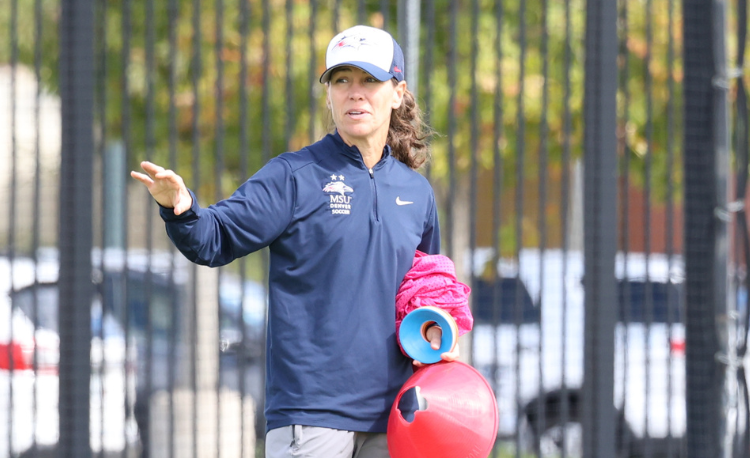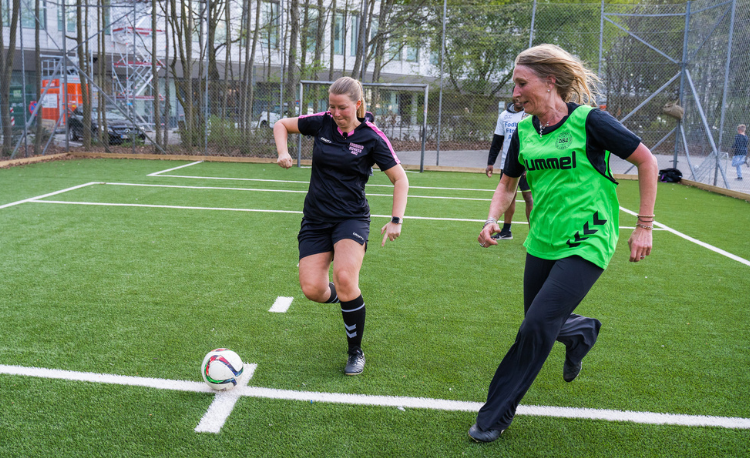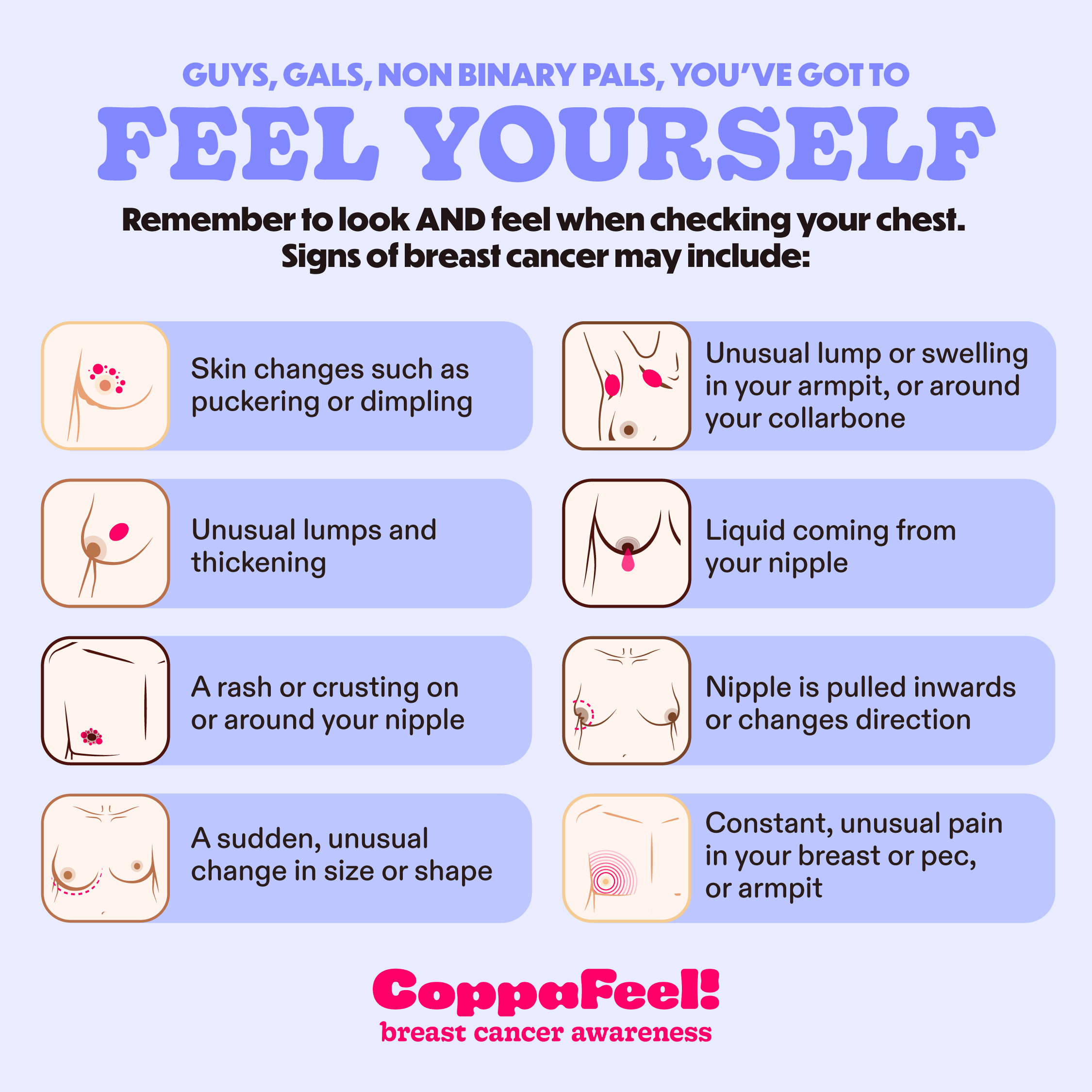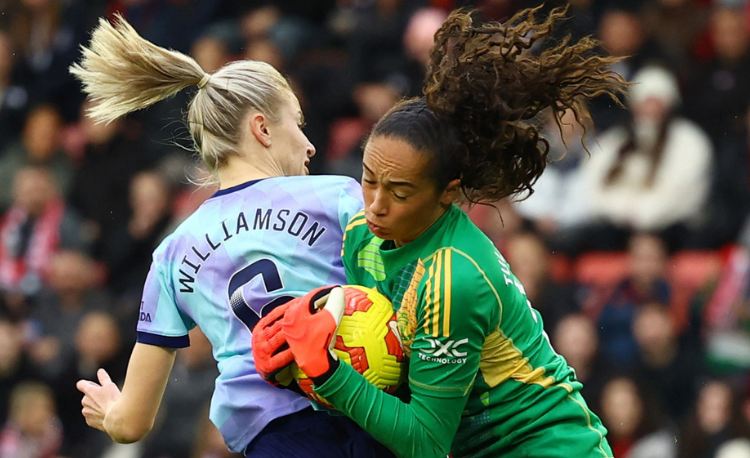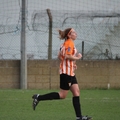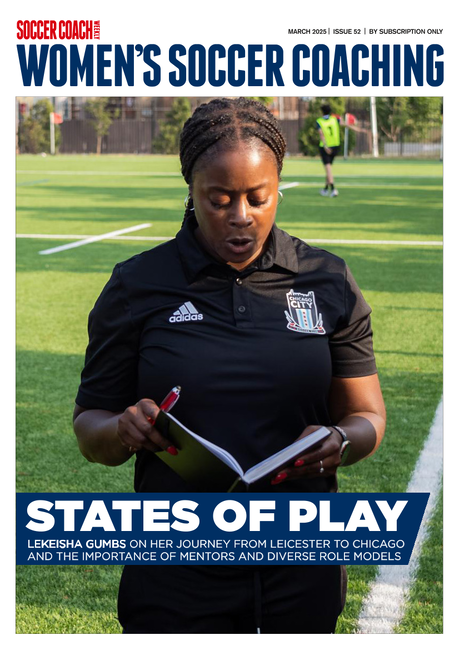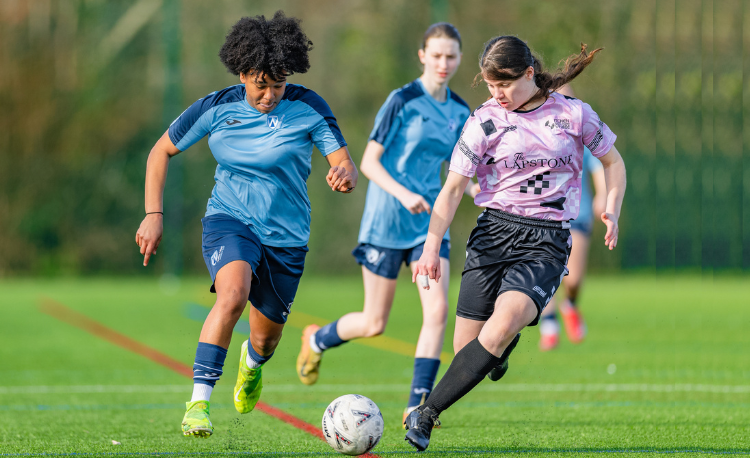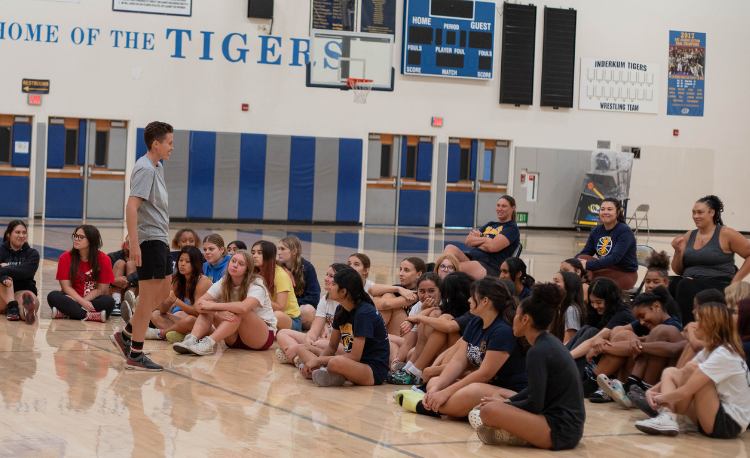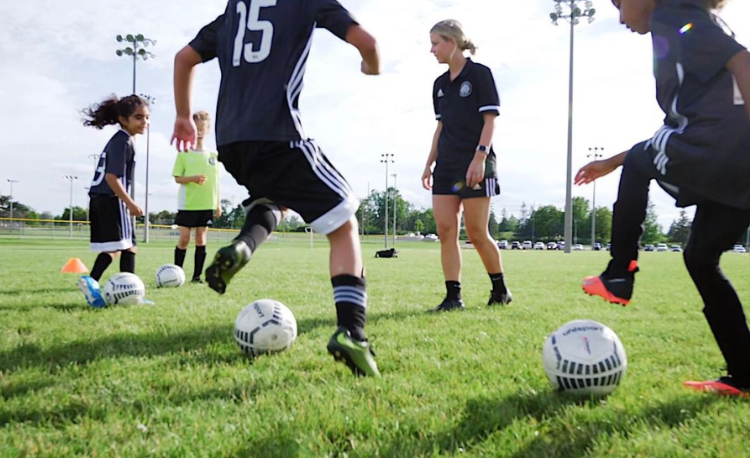You are viewing
1 of your 3 free articles
Breast cancer and soccer coaching: FAQs, tips and myth-busting with Coppafeel
What are the signs? How can people check themselves? And how can coaches begin a healthy conversation around it? Hannah Duncan speaks to Emma Walker, of UK charity CoppaFeel!, to get the answers to the key questions...
In the USA, 1 in 8 women will be diagnosed with breast cancer, with the risk in the UK being 1 in 7.
While the condition mainly affects middle-aged and older women, anyone with breast tissue, of any age, ethnicity and gender, can be diagnosed.
CoppaFeel! is the UK’s only youth-focused breast cancer awareness charity, on a mission to get every 18-24 year-old checking their chest.
Soccer coaches can play an important role in awareness – but it is important to know the facts, first.
Here are answers to some key questions – and some myth-busting, too...
So, basics first. What is breast cancer? And are there different types?
EW: Cancer is a condition that causes cells in the body to grow out of control. These cells form growths called tumours.
Breast cancer is cancer that forms in breast tissue. But breast tissue is not only in your breasts – it goes all the way up to your collarbone and under your armpit.
Everyone has breast tissue – people of all ages, ethnicities and genders.
If breast cancer is diagnosed early, it can be treated successfully. This is why we encourage you to check your chest every month.
1 in 7 women in the UK will be diagnosed with breast cancer in their lifetime.
Is it only females who can develop breast cancer?
EW: Men can be affected by breast cancer too. We all have breast tissue, so breast cancer can affect anybody of any age, ethnicity and gender.
Around 55,500 women and around 400 men are diagnosed with breast cancer each year in the UK.
What are some of the signs of breast cancer? And how can people check?
EW: We have a handy graphic (see left) which outlines possible signs of breast cancer.
We encourage everyone to check their chest every month. By getting to know what is normal for you, you will be able to notice any unusual changes.
What is ’normal’ for breast shape/size?
EW: It’s normal to have breasts of different sizes. We all have different chests and nipples. It’s really important to get to know what is normal for you.
Can women expect any normal changes at different stages of the menstrual cycle?
EW: Breasts come in all shapes and sizes, and they will change throughout your life.
Some breast lumps are perfectly normal, but if you get a new lump, or an old lump comes back, contact your healthcare practitioner.
It is important to get to know your normal monthly rhythm so you notice any unusual changes quickly.
If you have periods, you might find that your breasts naturally change as part of your monthly cycle.
It is normal for your breasts to feel tender or sore around the time of your period. This is called cyclical pain and is very common.
Cyclical pain is caused by natural hormone changes and it is harmless.
Can women expect any normal changes during pregnancy?
EW: It is normal for your breasts to change during pregnancy. Both pregnancy and breastfeeding cause breast changes because of pregnancy hormones.
During pregnancy and breastfeeding, you may notice changes to your breasts, such as:
- Changes in size or shape
- Changes in skin colour
- Increased sensitivity
- Visible veins
It is important that you keep checking your chest during pregnancy. This is to help you get to know the natural changes that come and go.
Breast cancer can happen during pregnancy, and when breastfeeding. If you are worried about any breast changes, talk to your healthcare practitioner, or midwife.
What should someone do if they are concerned about a change in their breasts?
EW: If you are worried about a change, book an appointment with your healthcare practitioner.
They will probably want to examine your chest area. This might include under your armpits and up to your collarbone.
It can be helpful to wear loose clothing or separate top and bottoms.
It can feel embarrassing to talk to a medical professional about your chest, but, remember, they have seen it all before.
To read our tips for appointments with medical professionals click here.
Tips for coaches and myth-busting
Related Files
Should coaches of female players be encouraging them to check themselves regularly? Is there an appropriate age to start these conversations?
EW: Coaches can definitely have the conversations, and encourage people to be aware of their bodies.
There is no specific age to start. Our Boobette volunteers talk to school-aged people, from the ages of 12-13. Below these ages, we gently encourage body awareness.
Are there any natural changes, pains etc, which may be more prevalent in female soccer players than the average person, which shouldn’t cause concern?
EW: Not that we are aware of. Make sure sports bras fit comfortably, and don’t ignore any new, unusual changes to your chest. If in doubt, get checked out.
How can coaches best talk to their players about breast health? Particularly male coaches of female players?
EW: The checking conversations can be part of a wider conversation about body awareness. Coaches can signpost to CoppaFeel! for more information.
There’s a Self-Checkout web app, which guides people through checking, and supports people who are new to checking.
We talk about ‘chests’ and ‘chest checking’ to include all bodies and genders. This can help coaches have the conversation with everybody.
Football is a physical sport. Players can get hit in the chest, and also control the ball with their chest. Should players or coaches be worried about this?
EW: No. Getting an injury or being hit in the chest does not cause, or increase your risk of, breast cancer.
Can wearing certain types of bra, or a poorly-fitting sports bra, damage the breasts and increase the risk of breast cancer?
EW: No. Wearing the wrong size bra, a wired bra or sleeping in your bra does not cause, or increase your risk of, breast cancer.
Physical activity often requires a lot of deodorant. Can this increase the risk of breast cancer, particularly if players are using more than the average person?
EW: No. There is no evidence that deodorants or body sprays cause breast cancer. However much deodorant you use, it will not increase your risk of breast cancer.
What resources are available for coaches, parents and players to read more?
EW: Visit coppafeel.org for more information, ways to support the chest-checking mission, and to try the Self-Checkout.
If you’re in the UK, you can also text CHECK to 82228, for a free, monthly text reminder from CoppaFeel!
Standard network rates apply for texts you send us. Receiving our reminders in the UK is free.
Newsletter Sign Up
Newsletter Sign Up
Discover the simple way to become a more effective, more successful soccer coach
In a recent survey 89% of subscribers said Women's Soccer Coaching makes them more confident, 91% said Women's Soccer Coaching makes them a more effective coach and 93% said Women's Soccer Coaching makes them more inspired.
*includes 3 coaching manuals
Get Inspired
All the latest techniques and approaches
Women's Soccer Coaching offers proven and easy to use soccer drills, coaching sessions, practice plans, small-sided games, warm-ups, training tips and advice.
We've been at the cutting edge of soccer coaching since we launched Soccer Coach Weekly in 2007, creating resources for the grassroots youth coach, following best practice from around the world and insights from the professional game.


